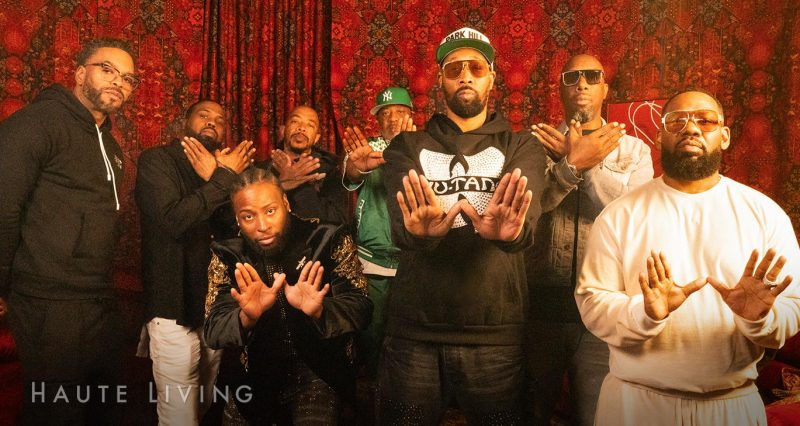Breaking News: Wu-Tang Clan Announces New Concept Album Release Date — But Fans Are Divided Over the Message

In a surprise move that’s already shaking up the hip-hop world, the Wu-Tang Clan has officially announced the release date for their long-rumored new concept album, titled “36 Chambers: The Reckoning.” The album is slated to drop this fall—October 10th, 2025—marking the group’s first full-length collective project in nearly a decade. But while die-hard fans are celebrating the return of the iconic Staten Island crew, others are raising eyebrows over the album’s polarizing theme, political undertones, and the group’s decision to lean heavily into a narrative some are calling “anti-industry” and “socially reckless.”
A Concept Album That Doesn’t Hold Back
According to a press release, “36 Chambers: The Reckoning” is being billed as “a revolutionary meditation on power, surveillance, racial capitalism, and the erosion of Black creativity in a corporatized, algorithm-driven music industry.” Sources close to the Clan say the album will blend classic East Coast grit with Afrofuturist storytelling and elements of spoken word, beat poetry, and even experimental jazz. It’s expected to feature collaborations with Kendrick Lamar, Erykah Badu, Run The Jewels, and a surprising feature from Rage Against the Machine’s Zack de la Rocha.
RZA, the group’s de facto leader, stated during an Instagram Live, “This album isn’t just about the music. It’s a war cry. It’s a mirror. And it’s a eulogy for what the industry tried to turn us into.”
But not everyone’s here for it.
Controversial Themes: Are Wu-Tang Crossing the Line?
In a track allegedly titled “Streaming Chains,” the Clan reportedly targets major platforms like Spotify and Apple Music, accusing them of exploiting Black artists while manipulating trends to suppress conscious rap. Another track, “Ghosts of the Billboard,” calls out major record labels for profiting off Black trauma while sanitizing protest music for mainstream audiences.
The lyrics are said to reference specific executives and even allude to long-standing rumors about payola, cultural theft, and censorship in hip-hop. One unreleased bar leaked to Reddit includes the line: “They want the hood tales without the hood’s truth / Just enough blood to sell a TikTok loop.”
Critics have already jumped on the album’s concept as “divisive” and “conspiratorial,” with some media outlets accusing Wu-Tang of promoting anti-corporate paranoia and possibly alienating younger fans who grew up on streaming culture and algorithm-driven playlists.
But some fans and scholars are calling it exactly what hip-hop needs.
A Return to Roots—or a Risky Gamble?
Dr. Ayana Ferguson, a cultural historian at Howard University, praised the project’s ambition: “This is Wu-Tang returning to the cipher—not just the studio. They’re challenging the system that made them legends but now tries to silence what made them dangerous in the first place.”
Still, others are skeptical. Online forums and fan pages are ablaze with debates over whether the album’s “woke” stance will turn off casual listeners. Some longtime fans argue that Wu-Tang’s cryptic storytelling and layered metaphors might be too dense for Gen Z, who largely consume music through bite-sized social content.
Meanwhile, Gen Z Wu-Tang fans have fired back, saying that if anything, the album could spark a renaissance of socially conscious rap, especially at a time when the genre is dominated by escapist content, influencer rappers, and AI-generated music.
What’s at Stake?
Wu-Tang Clan’s legacy as trailblazers is undisputed—but with “36 Chambers: The Reckoning,” they’re not just staking their claim as artists. They’re declaring war on an industry they helped build but believe has lost its soul.
Whether this album revives the golden era spirit or crashes under the weight of its own message, one thing is clear: this won’t be a quiet release. And knowing Wu-Tang, that’s exactly the point.
Wu-Tang is for the children—but will the children still listen?









